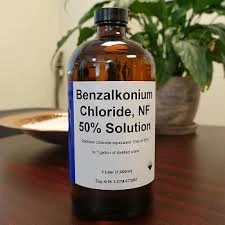benzyl isothiazolinone
The Role of Benzyl Isothiazolinone in Modern Applications
Benzyl isothiazolinone (BIT) is a versatile compound widely used in various industries due to its potent biocidal properties. As a member of the isothiazolinone family, BIT has gained attention for its efficacy in controlling microbial growth, making it an essential ingredient in formulations designed to preserve products and enhance their longevity. This article explores the chemical characteristics, applications, safety considerations, and future prospects of benzyl isothiazolinone.
Chemical Structure and Properties
Benzyl isothiazolinone is characterized by its unique isothiazolone ring structure, which contains a five-membered heterocyclic compound with sulfur and nitrogen atoms. This structure is crucial in imparting its biocidal properties. BIT is often used as a preservative in cosmetic products, paints, and industrial fluids. Its ability to inhibit the growth of bacteria, fungi, and algae makes it an effective ingredient in preventing spoilage and degradation.
The compound works by disrupting cellular functions in microorganisms, ultimately leading to cell death. This biocidal action is attributed to its capacity to penetrate microbial membranes and interfere with essential cellular processes, such as protein synthesis and membrane integrity. The effectiveness of BIT can be influenced by factors such as concentration, pH, and temperature, highlighting the importance of proper formulation in various applications.
Applications Across Industries
Benzyl isothiazolinone is utilized extensively in numerous sectors, showcasing its versatility
. Here are some primary applications1. Cosmetics and Personal Care BIT is a popular choice in cosmetic formulations, including lotions, shampoos, and creams. It helps prevent microbial contamination, extending the shelf life of these products. Given the sensitive nature of skin and hair care products, the inclusion of effective preservatives like BIT is crucial for consumer safety.
2. Industrial Preservatives In industrial applications, BIT is frequently added to water-based products, such as paints, coatings, and adhesives, to protect against microbial growth. The aggressive environment of industrial settings makes it necessary to incorporate potent preservatives to ensure product performance and durability.
3. Home Care Products BIT can be found in various household cleaning products, ensuring that they remain free from microbial contamination. Its efficacy in low concentrations allows manufacturers to create cleaning agents that are both effective and safe for consumer use.
benzyl isothiazolinone

4. Wood Protection The wood industry also benefits from the antimicrobial properties of BIT. It is used as a preservative in wood treatments to protect against rot and decay caused by fungi and bacteria, thereby enhancing the longevity of wooden materials.
5. Textiles and Papers BIT is applied in the textile and paper industries to prevent microbial spoilage during production and storage. The compound helps maintain the quality and hygiene of products by inhibiting the growth of microbes.
Safety Considerations
While benzyl isothiazolinone offers numerous benefits, it is essential to consider its safety profile. Over the years, concerns have risen regarding the potential for skin sensitization and allergic reactions following exposure to BIT. Regulatory agencies, including the European Union’s Scientific Committee on Consumer Safety (SCCS), have established guidelines to ensure safe usage levels in cosmetic products.
The concentration of BIT must be carefully controlled, as higher levels can increase the risk of adverse reactions. Manufacturers are encouraged to conduct thorough safety assessments and adhere to the established limits to protect consumers.
Future Prospects
As industries continue to seek effective and sustainable solutions for microbial control, the role of benzyl isothiazolinone is likely to evolve. Ongoing research may lead to the development of novel formulations that enhance its efficacy while minimizing potential side effects. Innovations in delivery systems and encapsulation techniques could offer ways to optimize BIT’s performance.
Additionally, as environmental concerns grow, there is a push for more eco-friendly preservatives. Companies may explore natural alternatives or develop modified versions of BIT that maintain its antimicrobial properties while aligning with sustainable practices.
Conclusion
Benzyl isothiazolinone is a powerful biocide with significant contributions to various industries, primarily through its applications as a preservative in cosmetics, industrial products, and more. While safety considerations remain paramount, the ongoing research and development surrounding BIT promise to sustain its relevance in a rapidly evolving market. As we advance towards a future focused on sustainability and consumer safety, the continued exploration of benzyl isothiazolinone will be essential in addressing the challenges posed by microbial contamination across diverse applications.
-
Pbtc Scale InhibitorPBTC: A Scale Protector for Industrial Water TreatmentNewsAug.05,2025
-
Organic Phosphonate: An Efficient Defender in the Field of Scale InhibitionNewsAug.05,2025
-
Hydrolyzed Polymaleic Anhydride: Green Pioneer in Scale Inhibition FieldNewsAug.05,2025
-
PAPEMP Polyamino Polyether Methylene Phosphonic Acid For SaleNewsAug.05,2025
-
Flocculant Water Treatment: A Pioneer in Purification in the Field of Water TreatmentNewsAug.05,2025
-
Benzyl Isothiazolinone: An Efficient and Broad-Spectrum Antibacterial Protective GuardNewsAug.05,2025





